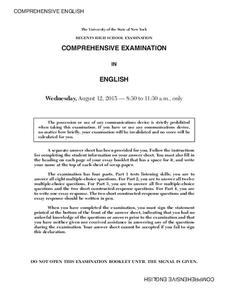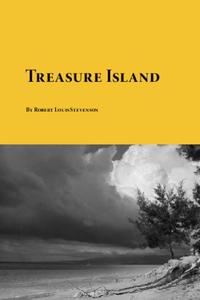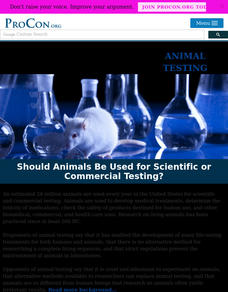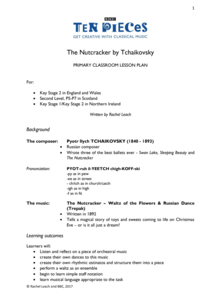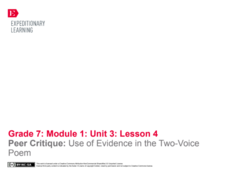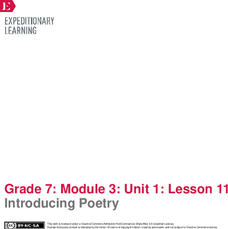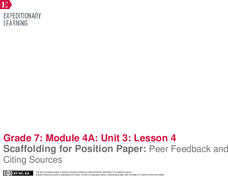New York State Education Department
Comprehensive English Examination: August 2015
Looking at literature through a critical lens helps readers connect the text to the larger world. An essay examining the theme "There is no ill in the world without a remedy" forms the main part of a sample comprehensive English...
University of North Carolina
Book Reviews
Reading goes beyond taking in information—it also involves forming impressions about what we read. Sometimes we share those impressions through book reviews, a specific type of writing outlined in a handout on the topic. Using the...
Planet e-Book
Treasure Island
Simple yet convenient: this resource is a real treasure! Robert Louis Stevenson's adventure novel, Treasure Island, engages readers of all ages with its tales of treasure maps, buried gold, and pirates. With a sleek eBook, learners can...
Scholastic
Organization Outline
Forming a strong organizational outline is important when reading a complex text, writing an informative essay, or analyzing a complicated problem. Use a straightforward organization outline to teach learners about concept mapping.
Meadows Center for Preventing Educational Risk, University of Texas at Austin
Lesson 11 - Affixes with Unchanging Base Words
Adding an affix to a word sometimes changes its meaning, just like magic. Using 11th of 17 lessons in the Word Recognition and Fluency series, readers become vocabulary magicians, learning to form and decode words that contain common...
Reed Novel Studies
Sing Down The Moon: Novel Study
Human trafficking has existed in many forms throughout history. Using a novel study of Sing Down the Moon by Scott O'Dell, readers learn the story of a young Native American girl taken into slavery. Reading comprehension and vocabulary...
Curated OER
Animal Testing
Animal testing: cruel and inhumane, or innovative and life-saving? Scholars explore the topic and form their own opinions with help from the highly informative website. Pupils read a comprehensive overview of the topic, including...
Curated OER
Cell Phone Radiation
Should people be more worried about cell phone radiation? Scholars read extensive background information about the issue to prepare for a class discussion or debate. As they explore the website, they learn the main arguments for and...
Curated OER
Corporal Punishment
Nineteen states legally permit school officials to physically punish children. Scholars learn more about the topic as they use the website to prepare for a class debate or discussion. Pupils read background information and discover the...
BBC
The Nutcracker by Tchaikovsky
Over the course of six lessons, scholars try their hand at composing and dancing after a thorough examination of the famous ballet, The Nutcracker, by Tchaikovsky. Participants watch and discuss the performance of two dances, create and...
Poetry4kids
How to Write a Silly Song Parody
Imitation is the sincerest form of flattery—and it's a great way to learn about poetic structure! Young poets use familiar tunes to write a song parody based on straightforward guidelines.
ProCon
Drinking Age
Eighteen is the age of adulthood in the United States, but 21 is the legal drinking age. Pupils use the provided website to determine whether the age to legally purchase and consume alcohol should be lowered. They weigh the pros and...
ProCon
National Anthem Protests
San Francisco 49ers quarterback Colin Kaepernick refused to stand for the National Anthem in 2016 as a form of protest. Were his actions appropriate? Using the provided website, pupils attempt to decide for themselves by reading the main...
ProCon
Obesity
Is obesity a disease or just a preventable risk factor for other diseases? Scholars attempt to form their own opinions by reading a background of the issue and watching videos that explore the main pro and con arguments using an included...
ProCon
School Uniforms
Americans spend around one billion dollars each year on school uniforms, but are they necessary? As pupils research the debate topic, they form their own opinions. They review the history of school uniforms and discover the top pro and...
Literacy Design Collaborative
The Sunflower: The Possibilities and Limitations of Forgiveness
After reading Simon Wiesenthal's The Sunflower, pupils form opinions either for or against forgiveness as well as analyze Wiesenthal's choice about forgiving. Before completing their essays, learners participate in class discussions to...
EngageNY
End of Unit Assessment: On-Demand Informational Paragraph About How the Poison Dart Frog Survives
A final assessment marks the end of a unit that takes a close look at a variety of informational texts all about frogs. A graphic organizer aides scholars in planning an accordion paragraph using their recorder forms from previous...
PBS
The Power of Personal Narrative
Personal narratives are powerful things. Whether told from the first-person or third-person point of view, whether in the form of an essay, a short story, novel, or video, whether fiction or fact, they capture readers and give them...
EngageNY
Peer Critique: Use of Evidence in the Two-Voice Poem
Peer editors review critique expectations before offering feedback on each other's two-voice poems. They record their feedback on peer critique recording forms, and then begin revising their poems.
EngageNY
Launching the Module: Identity and Transformation, Then and Now
Identify yourself! Learners listen to Nadia’s Hands read aloud before working in their identity journals to answer prompts relating to the story. They then look at identity using two recording forms Who Am I on the Outside? and Who Am I...
EngageNY
Scaffolding to Essay: Using Details to Support a Claim
Show me the evidence. Writers analyze the Command of Evidence row of the rubric for A Long Walk to Water essay. Pupils work in pairs to determine how the writer of a model essay meets the demands of the rubric. They then use a Forming...
EngageNY
Introducing Poetry
A silent reading session permits class members to meet individually with their teacher to discuss their text. Learners then discuss and express their observations about two poetry quotes, recording thoughts about craftsmanship, forms of...
EngageNY
End of Unit 2 Assessment, Parts 1A and 1B: Fishbowl on Screen Time and Adolescents
Here's a surefire way to ensure that class discussions go swimmingly! Using the resource, scholars participate in a Fishbowl activity, forming two concentric circles in the classroom. As the group on the inside of the fishbowl discusses...
EngageNY
Scaffolding for Position Paper: Peer Feedback and Citing Sources
Scholars partner up for peer feedback of their position papers. After reviewing peer feedback guidelines, pairs take turns presenting their papers and completing a Peer Feedback Form. The class then has a mini lesson on MLA format.
Other popular searches
- Asian Art Forms
- Islamic Art Forms
- 3 D Art Forms
- Hybrid Art Forms
- Native American Art Forms
- Binary Art Forms
- Art Forms of Chile
- Multimedia Art Forms
- African Art Forms
- Asian Art Forms0
- South American Art Forms


